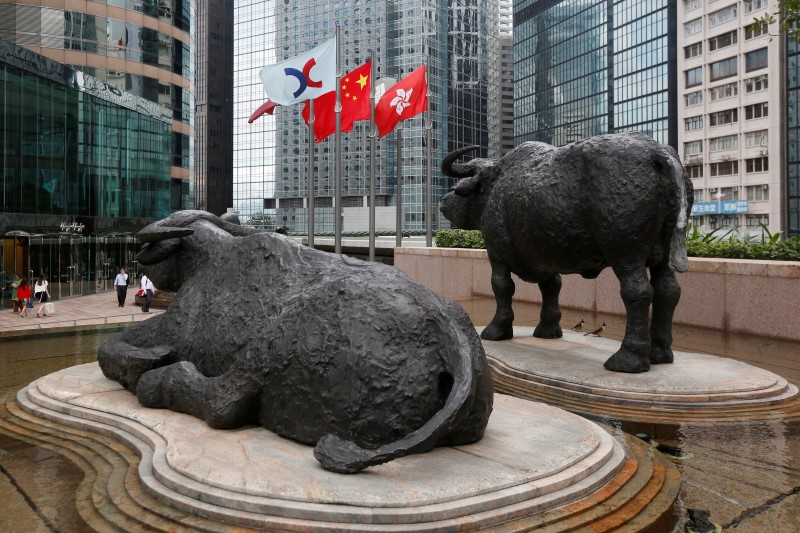(Bloomberg) -- Stocks in Hong Kong attracted record inflows via exchange-traded funds in March, as retail investors took advantage of a historic dip and an ensuing rebound to bet on further gains.
Some 60 equity ETFs tracking the city’s indexes added $4.4 billion since end-February, the most in monthly data compiled by Bloomberg going back to 2000. The Tracker Fund, the city’s first and largest ETF mirroring the benchmark Hang Seng Index, lured $1.5 billion, more than three times the net inflow for February.
The piling in of money suggests retail investors are sanguine about Hong Kong’s equity market outlook despite volatility. A growing diversity of products, including those focused on the metaverse, also likely helped ETFs gain traction. The Hang Seng Index has rebounded more than 20% from a mid-March trough, following Beijing’s pledge to end a regulatory crackdown and stabilize markets.
Read: H.K. Set to Be Asia’s Metaverse Gateway as More Join ETF Fray
“We have seen retail buying through ETFs when foreign institutional clients were selling in panic,” said Melody He, deputy chief executive officer at CSOP Asset Management Ltd. “It’s a more transparent and efficient way of tactically trading the market.”
The surge in flows into ETFs tracking Hong Kong stocks, many of which are mainland firms, comes as strategists remain split on the outlook for China equities. Skeptics are hesitant to turn bullish barring more policy clarity from the Chinese government, especially on the back of lingering regulatory risks and growing lockdowns in China’s big cities.
Stocks in Hong Kong are yet to recoup this year’s slump despite recent gains. The Hang Seng Index is down 5% this year, while the Hang Seng Tech Index -- which includes Alibaba (NYSE:BABA) Group Holding Ltd. and Tencent Holdings (OTC:TCEHY) Ltd. as members -- has lost more than 18%. Both gauges are on track to post monthly losses for March.
Still, another sign of investor optimism can be witnessed in stock purchases via the southbound trading links. Mainland Chinese traders have been snapping up Hong Kong’s beaten-down shares through the links, with net inflows reaching HK$48.9 billion ($6.3 billion) so far in March, set for the biggest monthly figure since December.
The inflows to ETFs signal that the rebound “may have staying power,” said Rebecca Sin, an analyst at Bloomberg Intelligence. “Chinese technology stocks may finally be on the road to recovery after government pledges revived the market’s risk appetite.”
The ETF market in Hong Kong has a relatively short history, with the first product launching in 1999 and its market capitalization equivalent to less than 1% of the overall stock market. It’s also smaller than the value of ETFs listed in Japan, China and South Korea exchanges, Bloomberg data show.
But it’s been growing fast of late, with a range of thematic products focusing on tech and ESG helping draw cash. The total market capitalization of 153 listed products on the Hong Kong exchange, including inverse and leveraged funds, reached HK$429 billion in 2021, expanding almost 50% from three years ago. As of February, the average daily turnover has risen to HK$8.9 billion, up 15% from the previous year.
Regulators are also planning to include ETFs in the stock connect schemes between Hong Kong and mainland bourses, potentially boosting liquidity in the local ETF market.
“We expect the inflows to continue given more product offerings, diverse issuances and greater connectivity with the mainland,” said CSOP Asset Management’s He. She added that the depth of Hong Kong’s ETF market “will improve over time.”
©2022 Bloomberg L.P.
